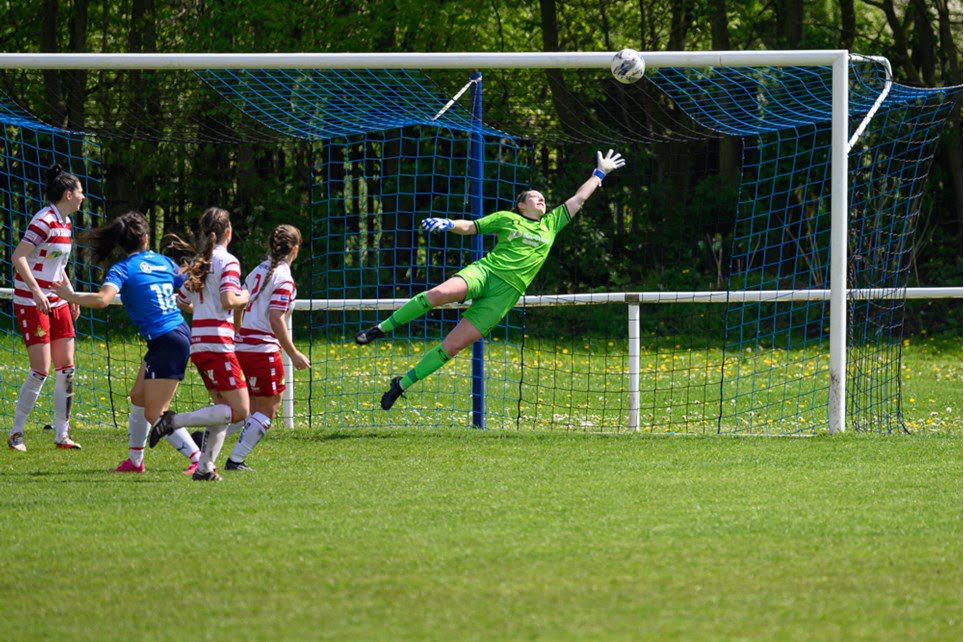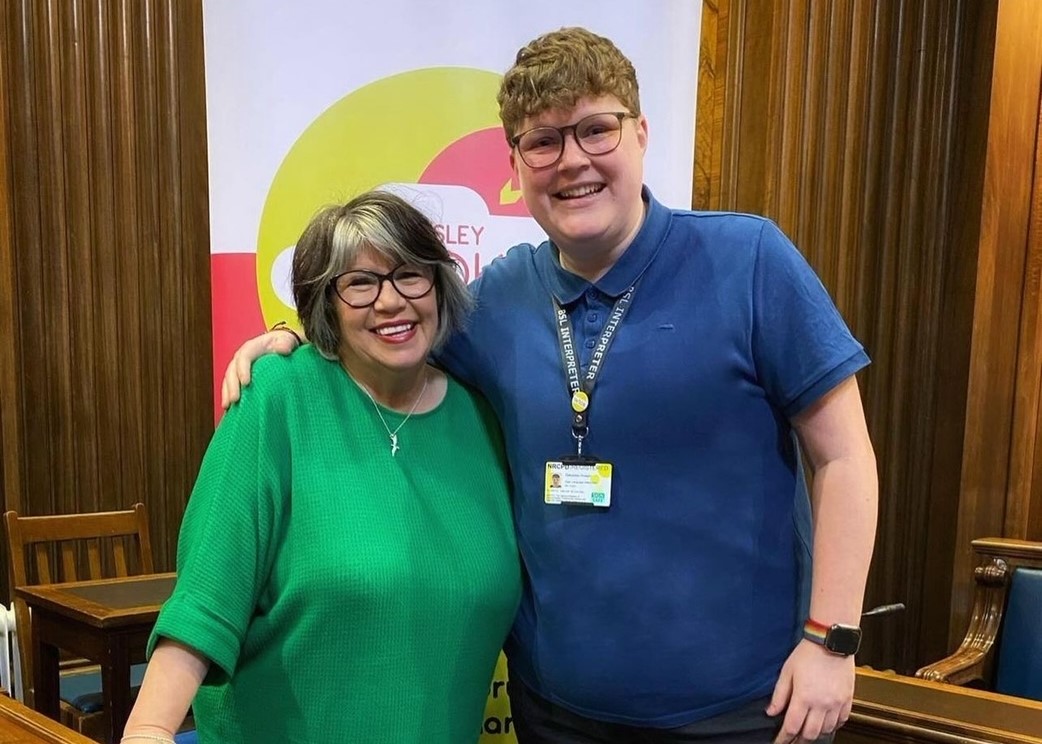Juggling with the pressures of work and study while playing the game they love is a reality faced by many women’s footballers.
Ellie Sharpe, a 29-year-old goalkeeper for Doncaster Belles, has experienced these very struggles.
She said: “So many times I work from 5am until 3pm, then come home and have a nap – just so I can then survive football training in the evening.”
Sharpe, who plays in the fourth tier of women’s football, works 40 hours a week at Lidl on top of training and playing for the Belles. She is also studying for a MA degree at Sheffield Hallam University, making it hard to find time in her day-to-day routine.
She said: “My boss keeps telling me, you need to retire from football now! ‘You need to step up to being a shift manager.’ Why do you need an education?’ I just look at him and go, ‘I want to better myself’. But yeah, it’s hard juggling everything.”
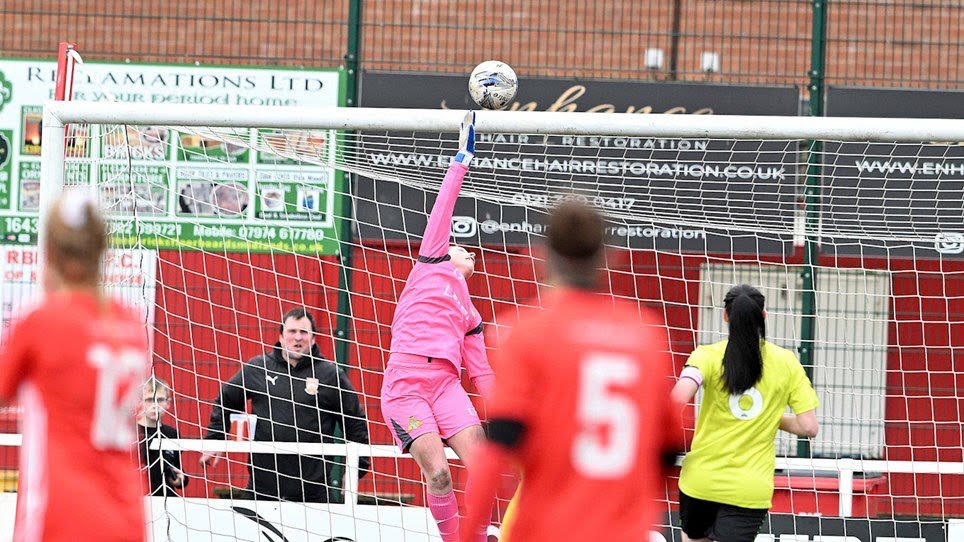
Ellie Sharpe in action for Doncaster Belles. Photo credit to Doncaster Belles.
This isn’t just a struggle exclusive to those in the lower levels of the women’s football pyramid. Bex Rayner, who has played at England Under-21 level, began by playing in the boy’s team at local side Bradford Park Avenue.
Her career path saw her play for Leeds United Women and Doncaster Belles, before settling in the Sheffield United women’s set-up as a main player.
Despite the Blades experiencing success in the FA Women’s Super League 2, they remain a part-time team in a league of full-time sides.
One league off the top flight, Rayner and her teammates have anxieties not relevant to the male equivalent level.
She has had to juggle the same issues voiced by Sharpe; working in order to continue playing the game both footballers love.
Rayner said: “It’s tiring having to fit everything in and still make sure you maintain focus, fitness and quality when you get to football.”
The route to get where she is today at Sheffield United hasn’t been straightforward.
Rayner’s time at Doncaster was abruptly cut short when the Belles’ financial situation at the time meant they couldn’t be promoted to the Women’s Super League (WSL).
She said: “I think after that my motivation got knocked a little because we work so hard, just to get our dreams shattered I guess. That was tough to take.”
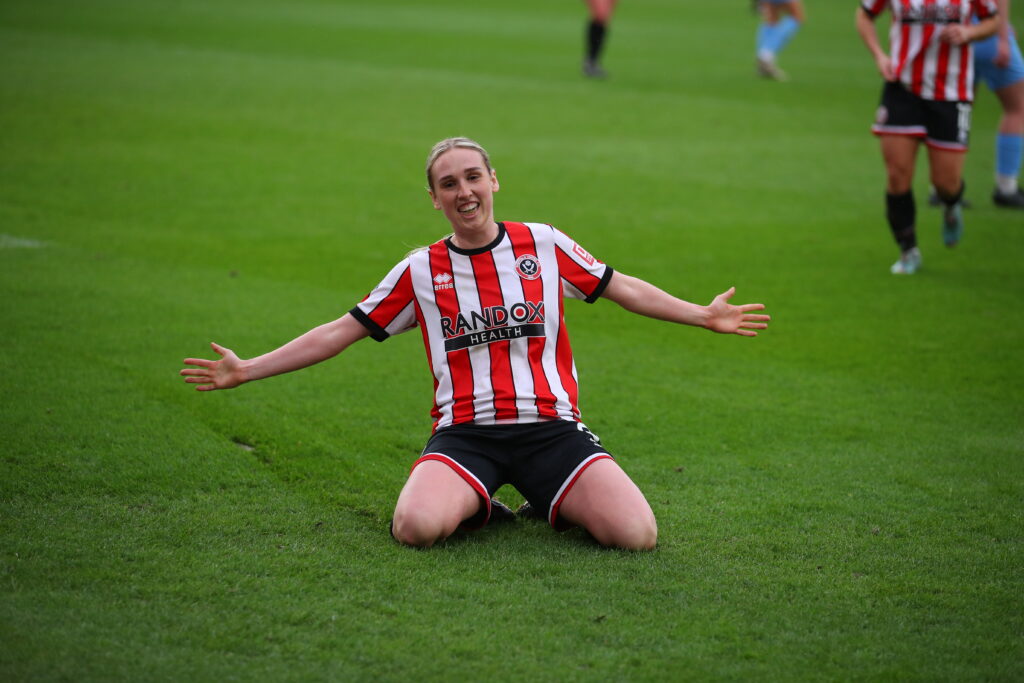
Bex Rayner celebrating in a Blades shirt. Photo credit to Sheffield United Women’s.
One player who will be featuring for a WSL team next season is Liv Clark. The former University of Sheffield student managed to break through professionally with Bristol City and also gained international recognition with Wales.
Now fully professional at Bristol, she is still aware of the struggles faced by many footballers to get to a certain level and the dedication it requires.
She said: “When I first joined Coventry United in the Championship, I didn’t get paid expenses. So, I was paying to travel from Sheffield to Coventry four times a week as well as being a full-time student. That was always difficult.”
Another financial anxiety for women is a lack of protection when it comes to long-term injuries, a situation Belles’ keeper Georgia Wattam has experienced first-hand.
Going down with a potentially career-ending injury after rolling her ankle in training – which could result in detached ligaments without surgery – the Belles keeper has resorted to fundraising online to cover the significant costs to be able to play again.
Without additional funds, her career could be in jeopardy at just 24 years of age.
Clubs competing in the Women’s National League – the division which Belles currently play in – receive no assistance when it comes to insurance for players.
Belles’ chief executive Russ Green believes that this will continue to hamper the women’s game, with girls fearing an injury scare could end all their hard work.
He said: “Unfortunately we have another situation where the lack of support from the authorities for players at our level is laid bare and Georgia has been put in an incredibly difficult position.
“Situations like Georgia’s are preventing women coming into – and more importantly staying in – the game. Severe injuries hamper people’s ability to work their regular jobs and players are taking that into account. If those in charge of the women’s game are serious about growth, they must address this issue and provide more support.”
For some, however, making it in the women’s game never comes to fruition.
Molly Ashman was an Aston Villa academy player, the lifelong 21-year-old Villa fan’s dream. Yet, even at Academy level, the pressure was too much for Ashman to handle.
She said: “There were times, multiple times in multiple teams where I’ve thought, like, I don’t want to do this anymore because I want to go out with my friends.
“Obviously school gets in the way as well. I just would never have time to do my homework. I’d have to tell teachers, if they wanted it the next day, ‘I just can’t do that because I’ve got training’.”
Ashman’s dream came to an end when Villa didn’t have a development squad to accommodate her. The likes of Doncaster Belles are also on the verge of scrapping their respective development team, a worrying trend made by clubs to cut costs.
Ashman’s final match at Academy level was an emotional one.
She said: “We used to run across the pitch at the end and it really hit me. That was my last match for Villa. And I just remember I just started crying in front of everyone because it just overwhelmed me. And it was just, wow, like that, seven years has just come to an end.”
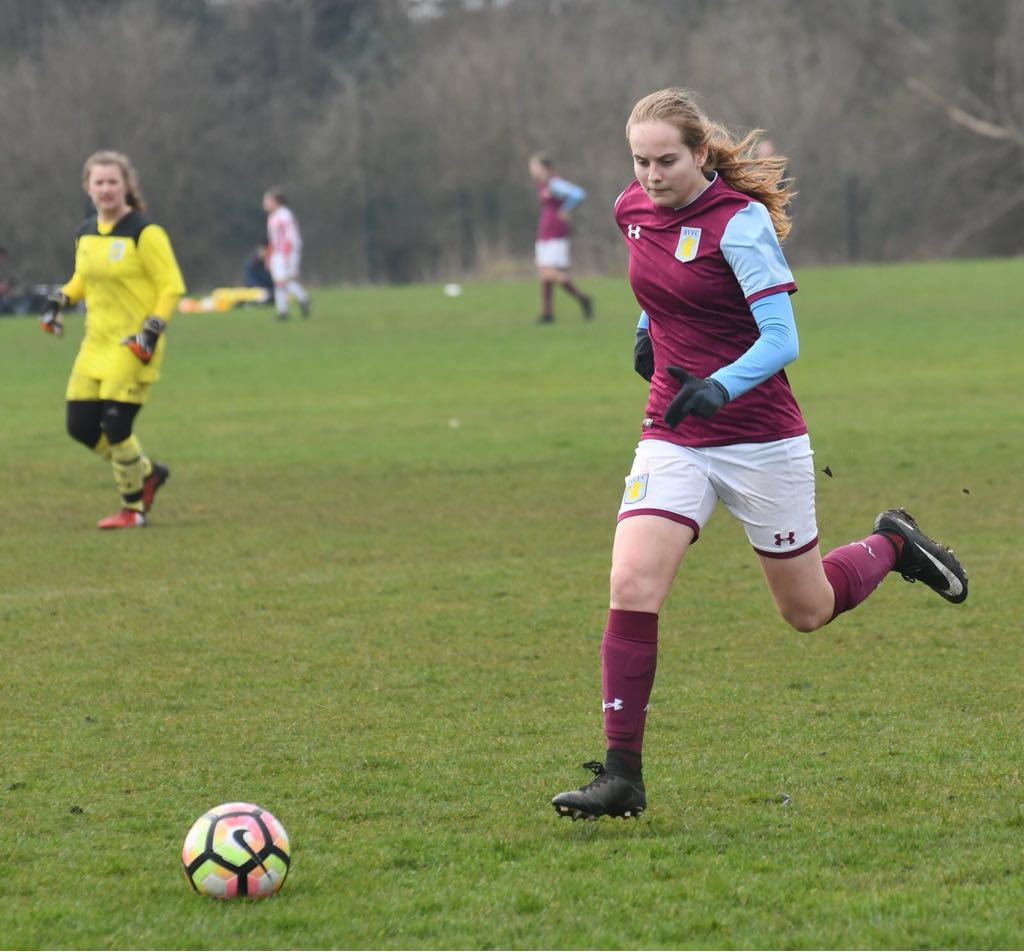
Molly Ashman playing for Aston Villa. Photo courtesy of Molly Ashman.
Although many footballers like Rayner, Clark and Sharpe, have experienced hurdles, their continued dedication and graft has allowed them to get where they are today.
With all the positive press about the women’s game continuing, it’s important to keep incentivising girls to get into the game to stop any aspiring footballers falling to the wayside.

